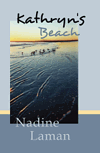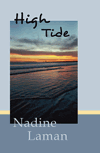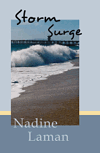Most of us remember book report writing in grammar
school. In addition to the obvious writing exercise, I thought that the real
reason for the book report was to prove to our teacher that we had read the
assigned book. Perhaps it was only a writing exercise.
Some people read book reviews before deciding to read
a book. For them, the information on the cover or the retail website isn't
enough. They want to know what others thought of the book.
Often books are sent out for review. That can be a
complicated process of who knows who on whether the book is reviewed.
Friends of authors want to write reviews as a sign of
support. Some publishers ask their writers to review each other's books.
First, it goes without saying that the book should be
read. It isn't always true that a reviewer reads the book. I have firsthand
knowledge of a review company that doesn't always read the reviews, because
they made assumptions about the character's profession and dared to put it into
print. After that, I have assigned no value to their reviews.
The novice reviewer should have a basic understanding
of the difference between a book report and a book review. Namely, do not tell
the story/plot in the review. Don't tell that there is a murder. Obviously, if
the book genre is a murder mystery, the potential reader will figure that out.
Certainly, don't tell who committed the murder.
Tell what was well done in the book. Did the author
capture the era or location so well that the reviewer found it palatable? Were
the characters appropriately developed to make the potential reader dispense
with reality and become submerged in the life of the story.
If you hate the book, maybe it wasn't your cup of tea.
Just because YOU didn't like it doesn't mean that it isn't a good book. Even
industry professionals disagree on books; that doesn't mean they are right --
it is only their opinion.
Reviews drive Amazon [and other's] ranking. That's a
good thing. However, the true value of a review is the quality of the content.
Check out this: Book Review UK
Check out this: Book Review UK

 When Paul Fenton stops for breakfast in a small town, he gets more than he bargained for in the process.
When Paul Fenton stops for breakfast in a small town, he gets more than he bargained for in the process.
 When two-hundred-year-old human remains are discovered on one of Neptune's moons, Earth's history falls into question.
When two-hundred-year-old human remains are discovered on one of Neptune's moons, Earth's history falls into question.
 Emily's husband persuades her to try thalidomide to ease her symptoms as she is unaware of the devastating effects.
Emily's husband persuades her to try thalidomide to ease her symptoms as she is unaware of the devastating effects.
 Who is the women's shelter bomber? Melissa Ryan suspects that her husband knows.
Who is the women's shelter bomber? Melissa Ryan suspects that her husband knows.
 Further developments with the Wilder family.
Further developments with the Wilder family.
 A hidden past shakes the O'Donovan family to its core
A hidden past shakes the O'Donovan family to its core
 A swirl of emotion and choice, set in Cape Town, South Africa
A swirl of emotion and choice, set in Cape Town, South Africa
 Love is a constant, but it comes at a price.
Love is a constant, but it comes at a price.
 When the road ahead is unclear, sometimes you have to rely on trust.
When the road ahead is unclear, sometimes you have to rely on trust.
 The struggle between good and evil is ages old. It gets all the more complicated when the good guys aren't all good and the bad guys have redeeming qualities.
The struggle between good and evil is ages old. It gets all the more complicated when the good guys aren't all good and the bad guys have redeeming qualities.
 Story of a land mothering two races of people – the light-skinned and the dark-skinned.
Story of a land mothering two races of people – the light-skinned and the dark-skinned.
 A gifted Ukrainian ballerina comes into possession of a mysteriously coded address book.
A gifted Ukrainian ballerina comes into possession of a mysteriously coded address book.
 Six passengers' lives change for better or worse after they arrive in Honiton.
Six passengers' lives change for better or worse after they arrive in Honiton.
 Resilience and love in a harsh and unforgiving age
Resilience and love in a harsh and unforgiving age
 Kathryn's Beach
Kathryn's Beach High Tide
High Tide Storm Surge
Storm Surge